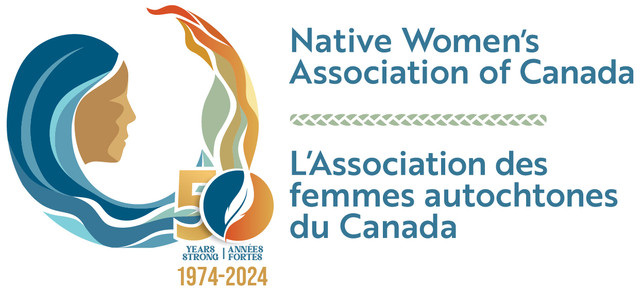FOR IMMEDIATE RELEASE
Canadians Far More Likely to Say Government’s Efforts to Protect Indigenous Women Have Been Poor Rather than Good: New Nanos Poll
"Canadians are not happy with government inaction … Our safety is something they care about, and politicians would be wise to heed what this survey is telling them…” Lynne Groulx, NWAC CEO
June 3, 2022
OTTAWA – Canadians are three times more likely to say their country has done a poor job of curtailing the deaths and disappearances of Indigenous women than to praise the work it has done federally to stop the bloodshed, a new poll suggests.
The wide-ranging survey commissioned by the Native Women’s Association of Canada (NWAC) and conducted by Nanos Research was made public on June 3, the third anniversary of the final report of the National Inquiry into Missing and Murdered Indigenous Women and Girls (MMIWG) which determined the violence to be part of an ongoing genocide. It comes a year after the government released a National Action Plan to address the tragedy.
Forty-one per cent of those polled rated the job done by the government to end the ongoing national tragedy of missing and murdered Indigenous women and girls as poor (score of zero to three out of 10). Just 12 per cent said the government’s performance has been good (score of seven to 10) , and another 33 per cent said it was average (score of four to six). Fourteen per cent were unsure.
Similar results were obtained when survey participants were asked for their thoughts about federal efforts to prevent future violence against Indigenous women, girls, and gender-diverse people, with 36 per cent rating the government’s performance as poor and 15 percent approving of their performance.
Those results were echoed when Nanos asked whether the government has done a good job of making communities safe for this vulnerable demographic.
“Three years after the release of the National Inquiry, Canadians are over three times more likely to rate the job done by the government of Canada as poor, rather than good, when it comes to ending the ongoing tragedy of missing and murdered Indigenous women and girls,” said Nik Nanos, the chief data scientist and founder of Nanos Research.
“Our poll suggests Canadians are aware of this issue, and they want the government to take effective measures to stop the violence.”
More than seven in 10 respondents told the pollster they have heard of the 231 Calls for Justice issued by the National Inquiry (71%). Of those who had heard, three out of four said they had average, or better than average, knowledge about the issue of the missing and murdered Indigenous women and girls.
And 61 per cent said it is important for the government to take action to prevent more deaths, while an additional 26 per cent said it is somewhat important.
“Implementing the Calls for Justice is a legal imperative, not an option,” said Lynne Groulx, CEO of the Native Women’s Association of Canada. “But this poll also suggests there is a political imperative. Canadians are not happy with government inaction when the lives of Indigenous women, girls, and gender-diverse people are at stake. Our safety is something they care about, and politicians would be wise to heed what this survey is telling them.”
Although the federal government has released a National Action Plan to respond to the Inquiry’s findings, that plan has no specific funding, timelines, or measurable goals. As a result, an NWAC analysis released this week found that little headway has been made toward achieving its objectives.
The government said in 2021 that it would allocate $2.2 billion over five years to stem the violence, but it is unclear how much has actually been spent, where it has been directed, and how much has been accomplished.
Nearly all of the respondents to the Nanos survey (95 per cent) said it is important, or somewhat important, for the government of Canada to be transparent in its spending to address the tragedy of the missing and murdered Indigenous women and girls.
The poll of 1,001 Canadians aged 18 and over, which was conducted between May 26 and May 30, was an online survey with respondents randomly recruited by landlines and cell phones.. The results are expected to accurately reflect the opinions of the broader Canadian public within ±3.1 percentage points, 19 times out of 20.
The survey respondents gave the government reasonably good marks for the respect it has shown for Indigenous people, their views, and their rights. And 65 per cent said the Federal Government in Ottawa has done a good (30 per cent) or average job (35 per cent) of addressing the issue of reconciliation.
But half of the people surveyed said the government has not adequately delivered on its promises to have clean water in Indigenous communities.
“We have heard much talk from the government about its desire to improve the relationship with Indigenous people,” said Ms. Groulx. “This survey suggests Canadians believe the government’s words have not been matched by action. This is an urgent situation. Our lives remain at risk.”
-30-
For information, or to arrange an interview, contact Gloria Galloway at gloria@gloriagalloway.com or 613-447-6648
